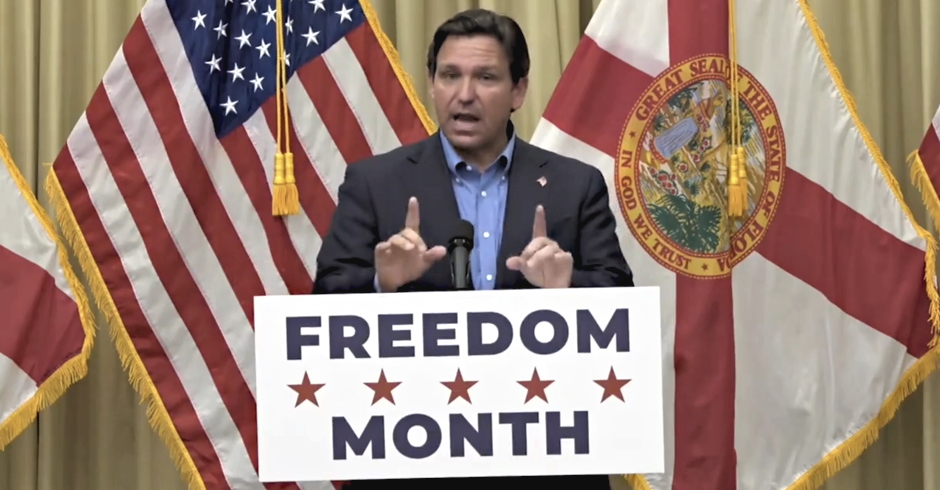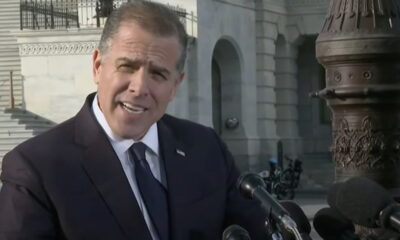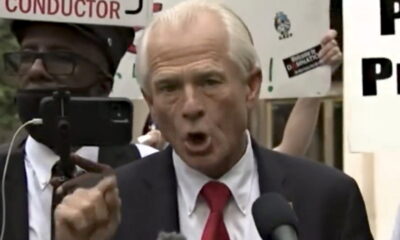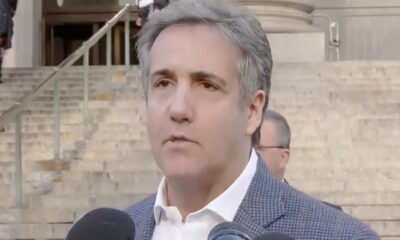Bombshell Letter: 200+ PhDs And MDs Question Scholarly Merit Of Regnerus Study
Mark Regnerus’ so-called  study of children of gay parents has  failed the rigorous  standards demanded by  academic peer review and his work is now under heightened scrutiny at the University of Texas and by the broader academic community  Â
Mark Regnerus of the University of Texas, Austin carried out a methodologically-challenged gay parenting study so blatantly in line with the anti-gay National Organization for Marriage‘s goals of smearing gay people for political purposes, that many have considered Regnerus’s work far closer to election year political propaganda than to science. Indeed, Regnerus received a $35,000 “planning grant” from the Witherspoon Institute, where NOM’s Robert George is a Senior Fellow. The appearance is that if George-Witherspoon had not approved the disingenuous, anti-gay study design, Regnerus would not have received any further funding from them. Regnerus has admitted that had he sought funding for a gay parenting study from the National Institutes of Health, their study protocol would have worked in the long-term best interest of science.
Regnerus’s activity is now the subject of a Scientific Misconduct inquiry at the University of Texas, Austin.
Scores of Ph.D.s and M.D.s and professionals in sociology, psychiatry and other relevant fields have sent a letter to James Wright, editor of “Social Science Research,” the journal where Regnerus’s study was published with a companion piece by the known anti-gay bigot Loren Marks. Â In an e-mail, Gary J. Gates, Ph.D., Wiliams Distinguished Scholar at the Williams Institute, UCLA School of Law, told me this about the letter:
“As a scholar who studies the LGBT population, I see my role as a squeaky wheel in the academic grease. Whatever assertions may be made about Dr. Rengerus’ ideological leanings or the leanings of his funders, it doesn’t change the fact that a credible academic journal with no obvious ideological bias published his paper. I find this astonishing. The evidence is pointing to an inappropriately accelerated and potentially  biased review process that calls the integrity of the journal and its editorial processes into serious question. The editorial advisors of Social Science Research include many notable and credible scholars. I am hopeful that they will eventually be compelled to intervene. If it can be clearly shown that the review process was biased and inadequate, the paper should be retracted until such time that it undergoes a more rigorous review.”
The letter follows in its entirety:
Letter to the editors and advisory editors of Social Science Research
As researchers and scholars, many of whom with extensive experience in quantitative and qualitative research in family structures and child outcomes, we write to raise serious concerns about the most recent issue of Social Science Research and the set of papers focused on parenting by lesbians and gay men. In this regard, we have particular concern about Mark Regnerus’ paper entitled “How different are the adult children of parents who have same-sex relationships? Findings from the New Family Structures Study.â€
LGBT parenting is a highly politicized topic. While the presence of a vibrant and controversial public debate should in no way censor scholarship, it should compel the academy to hold scholarship around that topic to our most rigorous standards. We are very concerned that these standards were not upheld in this issue or with this paper, given the apparently expedited process of publication and the decision to publish commentaries on the paper by scholars who were directly involved with the study and have limited experience in LGBT parenting research. We also have serious concerns about the scholarly merit of this paper.
In this letter, we detail the specific concerns that lead us to request that you publicly disclose the reasons for both the expedited peer review process of this clearly controversial paper and the choice of commentators invited to submit critiques. We further request that you invite scholars with specific expertise in LGBT parenting issues to submit a detailed critique of the paper and accompanying commentaries for publication in the next issue of the journal.
We question the process by which this paper was submitted, reviewed, and accepted for publication. The paper was received by the journal on February 1, 2012. A revision was received on February 29, and the paper was accepted on March 12. This suggests that the peer review process and substantive revisions occurred within a period of just five weeks. According to the peer review policy of the Social Science Research website hosted by Elsevier, the first step of the review process is an initial manuscript evaluation by the editor. Once deemed to meet minimum criteria, at least 2 experts are secured for a peer review. The website states that, “Typically manuscripts are reviewed within 2-3 months of submission but substantially longer review times are not uncommon†and that “Revised manuscripts are usually returned to the initial referees upon receipt.†Clearly, Dr. Regnerus’ paper was returned to him very quickly, because he had time to revise the manuscript and get it back to the journal by February 29th. Further, it appears that a second substantive peer review may not have occurred as the paper was accepted just two weeks after the revision was submitted.
The five-week submission to acceptance length was much shorter than all of the other articles published in the July 2012 issue. The average period of review for papers published in this issue was more than a year and the median review time was more than ten months. As we note below, there are substantial concerns about the merits of this paper, and these concerns should have been identified through a thorough and rigorous peer review process.
We further question the selection of commenters for the Regnerus paper. While Cynthia Osborne and Paul Amato are certainly well-respected scholars, they are also both active participants in the Regnerus study. According to her curriculum vitae, Dr. Osborne is a Co-Principal Investigator of the New Family Structure Survey. Dr. Amato served as a paid consultant on the advisory group convened to provide insights into study design and methods. Perhaps more importantly, neither Osborne nor Amato have ever published work that considers LGBT family or parenting issues. A cursory examination of this body of literature would reveal a wide range of scholars who are much more qualified to evaluate the merits of this study and were neither directly involved in the study design nor compensated for that involvement.
We have substantial concerns about the merits of this paper and question whether it actually uses methods and instruments that answer the research questions posed in the paper. The author claims that the purpose of the analysis is to begin to address the question, “Do the children of gay and lesbian parents look comparable to those of their heterosexual counterparts?†(p. 755). He creates several categories of “family typeâ€, including “lesbian mother†and “gay father†as well as “divorced late,†“stepfamily,†and “single-parent.†But, as the author notes, for those respondents who indicated that a parent had a “same-sex relationship,†these categories were collapsed to boost sample size:
That is, a small minority of respondents might fit more than one group. I have, however, forced their mutual exclusivity here for analytic purposes. For example, a respondent whose mother had a same-sex relationship might also qualify in Group 5 or Group 7, but in this case my analytical interest is in maximizing the sample size of Groups 2 and 3 so the respondent would be placed in Group 2 (LMs). Since Group 3 (GFs) is the smallest and most difficult to locate randomly in the population, its composition trumped that of others, even LMs. (There were 12 cases of respondents who reported both a mother and a father having a same-sex relationship; all are analyzed here as GFs, after ancillary analyses revealed comparable exposure to both their mother and father).
By doing this, the author is unable to distinguish between the impact of having a parent who has had a continuous same-sex relationship from the impact of having same-sex parents who broke-up from the impact of living in a same-sex stepfamily from the impact of living with a single parent who may have dated a same-sex partner; each of these groups are included in a single “lesbian mother†or “gay father†group depending on the gender of the parent who had a same-sex relationship. Specifically, this paper fails to distinguish family structure and family instability. Thus, it fails to distinguish, for children whose parents ever had a same-sex relationship experience, the associations due to family structure from the associations due to family stability. However, he does attempt to distinguish family structure from family instability for the children of different-sex parents by identifying children who lived in an intact biological family. To make a group equivalent to the group he labels as having “lesbian†or “gay†parents, the author should have grouped all other respondents together and included those who lived in an intact biological family with those who ever experienced divorce, or whose parents ever had a different-sex romantic relationship. That seems absurd to family structure researchers, yet that type of grouping is exactly what he did with his “lesbian mother†and “gay father†groups.
It should be noted that the analyses also fail to distinguish family structure from family stability for single mothers; this group included both continuously single mothers and those single mothers who had previously experienced a divorce.
The paper employs an unusual method to measure the sexual orientation of the respondents’ parents. Even if the analyses had distinguished family stability from family structure, this paper and its accompanying study could not actually directly examine the impact of having a gay or lesbian parent on child outcomes because the interpretation of the measurement of parental sexual orientation is unclear. The author acknowledges as much when he states:It is, however, very possible that the same-sex romantic relationships about which the respondents report were not framed by those respondents as indicating their own (or their parent’s own) understanding of their parent as gay or lesbian or bisexual in sexual orientation. Indeed, this is more a study of the children of parents who have had (and in some cases, are still in) same-sex relationships than it is one of children whose parents have self-identified or are ‘‘out’’ as gay or lesbian or bisexual.
Respondents were asked whether their parents had ever had a same-sex relationship. The author then identifies mothers and fathers as “lesbian†or “gay†without any substantiation of parental sexual orientation either by respondents or their parents. Given the author’s stated caveats, it is both inappropriate and factually incorrect for him to refer to these parents as “gay†or “lesbian†throughout the paper.
We are very concerned about the academic integrity of the peer review process for this paper as well as its intellectual merit. We question the decision of Social Science Research to publish the paper, and particularly, to
publish it without an extensive, rigorous peer review process and commentary from scholars with explicit expertise on LGBT family research. The methodologies used in this paper and the interpretation of the findings are inappropriate. The publication of this paper and the accompanying commentary calls the editorial process at Social Science Research, a well-regarded, highly cited social science journal (ranking in the top 15% of Sociology journals by ISI), into serious question. We urge you to publicly disclose the reasons for both the expedited peer review process of this clearly controversial paper and the choice of commentators invited to submit critiques. We further request that you invite scholars with specific expertise in LGBT parenting issues to submit a detailed critique of the paper and accompanying commentaries for publication in the next issue of the journal.Sociologists and Family Studies Scholars
Silke Aisenbrey, PhD
Assistant Professor of Sociology, Department of Sociology, Yeshiva University
Katherine R. Allen, PhD
Professor of Human Development, Virginia Polytechnic Institute and State University
Eric Anderson, PhD
Professor of Sports Medicine, University of Winchester
Nielan Barnes, PhD
Associate Professor of Sociology, California State University, Long Beach
Amanda K. Baumle, PhD
Associate Professor of Sociology, University of Houston
Debbie Becher
Assistant Professor, Department of Sociology, Barnard College, Columbia University
Mary Bernstein, PhD
Professor of Sociology, University of Connecticut
Natalie Boero, PhD
Associate Professor of Sociology, San Jose State University
H.M.W Bos, PhD
Assitant Professor of Sociology, University of Amsterdam
Lisa D Brush, PhD
Professor of Sociology, University of Pittsburgh
Neal Caren
Assistant Professor of Sociology, University of North Carolina, Chapel Hill
Mary Ann Clawson, PhD
Professor of Sociology, Wesleyan University
Dan Clawson, PhD
Professor of Sociology, University of Massachusetts Amherst
Philip Cohen, PhD
Professor of Sociology, University of Maryland
D’Lane Compton, PhD
Assistant Professor of Sociology, University of New Orleans
Shelley J. Correll, PhD
Professor of Sociology, Stanford University
David H. Demo, PhD
Professor of Human Development and Family Studies, University of North Carolina at Greensboro
Catherine Donovan PhD
Professor of Social Relations, University of Sunderland
Sinikka Elliott, PhD
Assistant Professor of Sociology, North Carolina State University
Louis Edgar Esparza, PhD
Assistant Professor of Sociology, California State University, Los Angeles
Laurie Essig, PhD
Associate Professor of Sociology and Gender Studies, Middlebury College
Myra Marx Ferree, PhD
Professor of Sociology, University of Wisconsin-Madison
Tina Fetner, PhD
Associate Professor of Sociology, McMaster University
Jessica Fields, PhD
Associate Professor of Sociology and Sexuality Studies, San Francisco State University
Melissa M. Forbis, PhD
Assistant Professor of Women’s and Gender Studies and Sociology, SUNY StonybrookGary J. Gates, PhD
Williams Distinguished Scholar, Williams Institute, UCLA School of Law
Naomi Gerstel, Phd
Distinguished Professor of Sociology, University of Massachusetts
Katherine Giuffre, PhD
Associate Professor of Sociology, Colorado College
Gloria González-López, PhD
Associate Professor of Sociology, University of Texas at Austin
Theodore Greenstein, PhD
Professor and Director of Graduate Programs for Sociology, North Carolina State University
Jessica Halliday Hardie
NICHD Postdoctoral Fellow, Population Research Institute, Pennsylvania State University
Mark D. Hayward
Professor of Sociology and Director, Population Research Center, University of Texas at Austin
Melanie Heath, PhD
Assistant Professor of Sociology, McMaster University
Amie Hess
Assistant Professor of Sociology, Meredith College
Melanie M. Hughes, PhD
Assistant Professor of Sociology, University of Pittsburgh
Shamus Rahman Khan, PhD
Professor of Sociology, Columbia University
Michael Kimmel, PhD
Professor of Sociology, SUNY
Sherryl Klienman, PhD
Professor of Sociology, University of North Carolina
Charles Q. Lau, PhD
Survey Research Division, RTI international
Jennifer Lee, PhD
Professor, Department of Sociology, University of California – Irvine
Jean Lynch, PhD
Professor and Chair, Department of Sociology and Gerontology, Miami University
Gill McCann, PhD
Professor of Sociology, University of Vermont
Tey Meadow, PhD
Cotsen Fellow, Princeton University
Sarah O. Meadows, PhD
Social Scientist, RAND Corporation
Eleanor M. Miller, PhD
Professor of Sociology, University of Vermont
Debra Minkoff, PhD
Professor of Sociology, Barnard College, Columbia University
Beth Mintz, PhD
Professor of Sociology, University of Vermont
Dawne Moon, PhD
Assistant Professor of Sociology, Marquette University
Mignon R. Moore, PhD
Associate Professor of Sociology, University of California, Los Angeles and Chair, Race, Gender & Class Section of the American Sociological Association
Chandra Muller
Professor of Sociology and Faculty Research Associate, Population Research Center, The University of Texas at Austin
Nancy A. Naples, PhD
Professor of Sociology and Women’s Studies, University of Connecticut
Peter M. Nardi, PhD
Emeritus Professor of Sociology, Pitzer College, The Claremont Colleges
Alondra Nelson, PhD
Associate Professor, Department of Sociology, Institute for Research on Women and Gender, Columbia University
Jodi O’Brien, PhD
Professor and Chair of Sociology, Seattle University
Katherine O’Donnell, PhD
Senior Lecturer, School of Social Justice, University College Dublin
Ramona Faith Oswald, PhD
Professor of Family Studies, University of Illinois at Urbana-Champaign
Joseph M. Palacios, PhD
Adjunct Professor of Social Sciences, Georgetown UniversityC.J. Pascoe, PhD
Assistant Professor of Sociology, Colorado College
Dudley L. Poston, Jr., PhD
Professor of Sociology, Texas A&M University
Nicole C. Raeburn, PhD
Associate Professor, Department of Sociology, University of San Francisco
Kimberly Richman, PhD
Professor of Sociology and Legal Studies, University of San Francisco
Barbara J. Risman, PhD
Professor and Head of Sociology, University of Illinois at Chicago
Sharmila Rudrappa, PhD
Associate Professor of Sociology, University of Texas at Austin
Stephen T. Russel, PhD
Professor of Family Studies and Human Development, University of Arizona
Virginia Rutter, PhD
Associate Professor of Sociology, Framingham State University
Natalia Sarkisian
Associate Professor of Sociology, Boston College
Saskia Sassen, PhD
Professor of Sociology, Columbia University
Liana C. Sayer
Associate Professor of Sociology, Ohio State University
Michael Schwalbe
Professor, Department of Sociology, North Carolina State University
Michael Schwartz, PhD
Chair and Professor of Sociology, Stony Brook University
Christine R. Schwartz, PhD
Associate Professor of Sociology, University of Wisconsin-Madison
Pepper Schwartz, PhD
Professor of Sociology, University of Washington
Denise Benoit Scott, PhD
Professor of Sociology, State University of New York at Geneseo
Richard Sennett, PhD
Professor of Sociology, New York University
Eve Shapiro, PhD
Professor of Sociology, Westfield State University
Eran Shor, PhD
Assistant Professor of Sociology, McGill University
Wendy Simonds
Professor of Sociology, Georgia State University
sarah sobieraj
Associate Professor of Sociology, Tufts University
Judith Stacey, PhD
Professor of Social and Cultural Analysis, New York University
Arlene Stein, PhD
Department of Sociology, Rutgers University
Verta Taylor, PhD
Chair and Professor of Sociology, University of California, Santa Barbara
Debra J Umberson, PhD
Professor of Sociology, University of Texas at Austin
Suzanna Danuta Walters, PhD
Professor of Sociology, Northeastern University
Jacqueline S. Weinstock, PhD
Associate Professor of Human Development & Family Studies, University of Vermont
Amy C. Wilkins, PhD
Assistant Professor of Sociology, University of Colorado
Cai Wilkinson, FHEA, PhD
Lecturer in International Relations, School of Humanities and Social Sciences, Deakin University
Kristi Williams, PhD
Associate Professor of Sociology, Ohio State University
Kerry Woodward, PhD
Assistant Professor of Sociology, California State University, Long Beach
Psychologists
Nancy Lynn Baker, PhD, ABPP
Diplomate in Forensic Psychology, Director, Forensic Concentration, Fielding Graduate University and Past President of the Society for the Psychology of Women
Meg Barker, PhD
Senior Lecturer in Psychology, The Open University, Milton Keynes, UKJoel Becker, PhD
Prof., Dept. of Psychology,UCLA and Assoc. Clinical Prof., UCLA, Medical School
Steven Botticelli, PhD
Clinical Assistant Professor of Psychology, NYU Postdoctoral Program in Psychotherapy and Psychoanalysis
Petra M Boynton, PhD
Social Psychologist, Lecturer in International Primary Health Research,UCL Medical School, University College London
Mark Brennan-Ing, PhD
Senior Research Scientist, AIDS Community Research Initiative of America
Alice S. Carter, PhD
Professor, Department of Psychology, University of Massachusetts – Boston
Carol A. Carver, PhD
Licensed Psychologist and Past President of the Oregon Psychological Association
Armand R. Cerbone, PhD, ABPP
Board Certified Psychologist
Kirstyn Y.S. Chun, PsyD
Tenured Faculty, Counseling and Psychological Services, California State University, Long Beach
Victoria Clarke, PhD
Associate Professor in Sexuality Studies, Department of Psychology, University of the West of England, UK
Gilbert W. Cole, PhD
Psychoanalytic Psychotherapy Study Center Guest Lecturer, Union Theological Seminary
M. Lynne Cooper, PhD
Associate Editor, American Psychologist and Curators’ Distinguished Professor, Department of Psychological Science, University of Missouri – Columbia
Howard H. Covitz, PhD, ABPP
Board Certified Psychologist
Dennis Debiak, PsyD
Adjust Associate Professor, Institute for Graduate Clinical Psychology, Widener University and Secretary, Division of Psychoanalysis, American Psychological Association
Rachel H. Farr, PhD
Postdoctoral Research Scholar, Department of Psychology,University of Massachusetts Amherst
Herb Gingold, PhD
Co-Founder, Noir Institute
Abbie E. Goldberg, PhD
Associate Professor of Psychology, Clark University
Carla Golden, PhD
Professor of Psychology, Ithaca College
Robert-Jay Green, PhD
Executive Director, ROCKWAY INSTITUTE for LGBT Psychology & Public Policy Distinguished Professor, California School of Professional Psychology (CSPP) at Alliant International University
Beverly Greene, PhD, ABPP
Professor of Psychology, St. John’s University
Harold D. Grotevant, PhD
Rudd Family Foundation Chair in Psychology, University of Massachusetts Amherst
Sarah A. Hayes-Skelton, PhD
Assistant Professor, Department of Psychology, University of Massachussets Boston
Stacy S. Horn, PhD
Associate Professor of Educational and Developmental Psychology, Univeristy of Illinois at Chicago
Sharon G. Horne, PhD
Associate Professor, Counseling Psychology, Department of Counseling and School Psychology, The University of Massachusetts Boston
Harm J. Hospers
Endowed chair Health Psychology and Homosexuality, Dean University College Maastricht, Dean Faculty of Humanities and Sciences, Maastricht University, The NetherlandsSteven E. James, PhD
Chair of Psychology & Clinical Mental Health Counseling Programs, Goddard College
Darren Langdridge, PhD
Head of Department of Psychology, The Open University, UK
Chet Lesniak, PhD
Core Faculty, Counseling Specialization, School of Psychology, College of Social and Behavioral Sciences, Walden University
Heidi Levitt, PhD
Associate Professor, Department of Psychology, University of Massachusetts Boston
William D. Lubart, PhD
Faculty and Supervisor of Psychotherapy, The William Alanson White Institute
Carien Lubbe-De Beer, PhD
Senior Lecturer, Department of Educational Psychology, University of Pretoria
Tasim Martin-Berg, CPsychol
Lecturer, Glasgow Caledonian University
James P. Maurino, MSW, PhD
Assistant Professor, Human Development and Community and Human Services, SUNY-Empire State College
Ximena E. Mejia, PhD, LMHC
Director, Counseling Services, Parton Health and Counseling Center, Middlebury College
Roger Mills-Koonce, PhD
Center for Developmental Science, University of North Carolina at Chapel Hill
Lin S. Myers, PhD
Professor of Psychology, California State University – Stanislaus
Jo Oppenheimer, MA
The Counseling Center for Women, Israel
Susan M. Orsillo, PhD
Professor, Department of Psychology, Suffolk University
David Pantalone, PhD
Assistant Professor of Psychology, Suffolk University
Jeffrey T. Parsons, Ph.D
Professor of Psychology and Public Health, Hunter College and the Graduate Center of the City University of New York
Maureen Perry-Jenkins, PhD
Professor of Psychology, University of Massachusetts – Amherst
Madelyn Petrow-Cohen, LCSW
psychotherapist in private practice in NYC & Maplewood, NJ
Todd R. Poch, PSYD, MALD, BCFM
Assistant Professor in Psychology, Florida Institute of Technology
Scott D. Pytluk, PhD
Professor, Illinois School of Professional Psychology, Argosy University, Chicago
Damien W. Riggs
Editor, Gay and Lesbian Issues and Psychology Review, Senior Lecturer in Social and Policy Studies, Flinders University, Australia
Lizabeth Roemer, PhD
Professor of Psychology, University of Massachusetts – Boston
Ritch C. Savin-Williams
Professor, Developmental Psychology and Director, Sex and Gender Lab, Cornell University
J. Greg Serpa, PhD
Clinical Psychologist, Department of Veterans Affairs and Assistant Clinical Professor, UCLA Department of Psychology
Louise Bordeaux Silverstein, PhD
Professor of Psychology, Yeshiva University
Bonnie R. Strickland, PhD, ABPP
Emeritus Professor of Psychology, University of Massachusetts
Karen Suyemoto, PhD
Associate Professor, Psychology and Asian American Studies, University of Massachusetts – Boston
Lance P. Swenson, PhD
Assistant Professor, Psychology Department, Suffolk University
Fiona Tasker, PhD
Department of Psychological Sciences, Birbeck University of London
Marcus C. Tye, Ph.D
Professor of Psychology, Dowling College
Richard G. Wight, PhD
Associate Researcher, UCLA School of Public HealthOther Scholars
Paula Amato, MD
Associate Professor, Oregon Health and Science University and Board Member, Gay and Lesbian Medical Association
Ellen Ann Andersen, PhD
Associate Professor of Political Science and Women’s and Gender Studies University of Vermont
Mary Barber, MD
Assistant Clinical Professor of Psychiatry, Columbia University College of Physicians and Surgeons and Co-Editor-in-Chief, Journal of Gay and Lesbian Mental Health
Judith Bradford, PhD
Co-Chair, The Fenway Institute and Director, Center for Population Research in LGBT Health
Robert P Cabaj, MD
Associate Clinical Professor in Psychiatry, University of California, San Francisco
Ryan M. Combs, PhD
Research Associate, Faculty of Medical and Human Sciences, University of Manchester, UK
Christopher Conti, MD
Assistant Clinical Professor, New York University Medical Center
Russel W. Dalton, EdD
Associate Professor of Religious Education, Brite Divinity School Texas Christian University
John D’Emilio, PhD
Professor of History, Gender and Women’s Studies, University of Illinois at Chicago
Anne Douglass, PhD
Assistant Professor, Department of Curriculum and Instruction, College of Education and Human Development, University of Massachusetts – Boston
Jack Drescher, MD
Clinical Associate Professor of Psychiatry and Behavioral Science, New York Medical College
Oliva M. Espin, PhD
Professor Emerita, Department of Women’s Studies, San Diego State University
Nanette Gartrell, MD
Distinguished Visiting Scholar, Williams Institute, UCLA School of Law
Patti Geier, LCSW
Therapist
Alan Gilbert
John Evans Professor, Josef Korbel School of International Studies, University of Denver.
Ann P. Haas, PhD
Senior Project Specialist, American Founcation for Suicide Prevention and Professor (ret.) Department of Health Sciences, Lehman College, CUNY
Ellen Haller, PhD
Professor of Clinical Psychiatry, University of California, San Francisco
Nicole Heilbron, PhD
Department of Psychiatry and Behavioral Sciences, Duke University School of Medicine
Tonda Hughes, PhD, RN, FAAN
Professor and Head of Health Systems Science, College of Nursing, University of Illinois at Chicago
Daniel Hurewitz, PhD
Assistant Professor, History Department, Hunter College, CUNY
Jesse Joad, MD, MS
Professor Emerita, Pediatrics, University of California – Davis and Vice President for Education, Gay and Lesbian Medical Association
Debra Kaysen, Ph.D
Associate Professor of Psychiatry, University of Washington
Sang Hea Kil, PhD
Assistant Professor of Justice Studies, San Jose State University
Martha Kirkpatrick, MD
Clinical Professor, Department of Psychiatry, UCLAHolning Lau, JD
Professor of Law, University of North Carolina at Chapel Hill
Arlene Istar Lev, LCSW
School of Social Welfare, SUNY Albany
Lisa W. Loutzenheiser, PhD
Associate Professor of Curriculum and Pedagogy, University of British Columbia
Michael F. Lovenheim, PhD
Assistant Professor of Policy Analysis and Management, Cornell University
Catherine A. Lugg, PhD
Professor of Education, Rutgers University
Gerald P. Mallon, DSW
Julia Lathrop Professor of Child Welfare, Silberman School of Social Work at Hunter College
Laura Mamo, PhD
Associate Professor of Health Education, San Francisco State University
Sean G. Massey
Associate Professor, Women, Gender & Sexuality Studies Program Binghamton University
Kenneth J. Meier, PhD
Charles H. Gregory Chair in Liberal Arts, Department of Political Science, Texas A&M University
Stephen O. Murray
El Instituto Obregón, San Francisco, CA
Douglas NeJaime, PhD
Associate Professor of Law, Loyola Law School, Los Angeles
Henry Ng, MD, MPH, FAAP, FACP
Assistant Professor, Case Western Reserve University School of Medicine Center for Internal Medicine and Pediatrics, MetroHealth Medical Center
Julie Novkov, PhD
Chair, Department of Political Science, Professor of Political Science and Women’s Studies,University at Albany, SUNY
Loren A. Olson, MD
Des Moines, IA
Donald L. Opitz, PhD
Assistant Professor, School for New Learning at DePaul University
Katherine Parkin, PhD
Associate Professor of History, Monmouth University
Jessica Peet, PhD
School of International Relations, University of Southern California
Victoria Pollock
Adjunct Faculty at the Toronto School of Theology, University of Toronto.
Jesus Ramirez-Valles PhD, MPH
Professor of Public Health, University of Illinois at Chicago
Nancy J. Ramsay, PhD
Professor of Pastoral Theology and Pastoral Care, Brite Divinity School, Texas Christian University
Paul J. Rinaldi, PhD
Clinical Director, The Addiction Institute of New York, Department of Psychiatry, St. Luke’s-Roosevelt Hospital Center
Barbara Rothberg, DSW, LCSW
Therapist
Esther Rothblum, PhD
Professor of Women’s Studies, San Diego State University
Ralph Roughton, MD
Emeritus Professor of Psychiatry, Emory University
Leila J. Rupp, PhD
Professor of Feminist Studies, University of California, Santa Barbara
Shawn Schulenberg, PhD
Assistant Professor, Department of Political Science, Marshall University
Ken Sherrill, PhD
Emeritus Professor of Political Science, Hunter College, CUNY
Vincent M. B. Silenzio, MD, MPH
Associate Professor,Departments of Psychiatry, Community & Preventive Medicine, and Family Medicine, University of Rochester
Stephen V. Sprinkle, PhD
Director of Field Education and Supervised Ministry, and Professor of Practical Theology Brite Divinity SchoolWilliam J. Spurlin, PhD, FHEA
Professor of English, Brunel University London
Carole S. Vance, PhD, MPH
Assoc. Clinical Professor, Mailman School of Public Health,Columbia University
Angelia R. Wilson, PhD
Politics Discipline, University of Manchester, UKÂ
New York City-based novelist and freelance writer Scott Rose’s LGBT-interest by-line has appeared on Advocate.com, PoliticusUSA.com, The New York Blade, Queerty.com, Girlfriends and in numerous additional venues. Among his other interests are the arts, boating and yachting, wine and food, travel, poker and dogs. His “Mr. David Cooper’s Happy Suicide†is about a New York City advertising executive assigned to a condom account.

Enjoy this piece?
… then let us make a small request. The New Civil Rights Movement depends on readers like you to meet our ongoing expenses and continue producing quality progressive journalism. Three Silicon Valley giants consume 70 percent of all online advertising dollars, so we need your help to continue doing what we do.
NCRM is independent. You won’t find mainstream media bias here. From unflinching coverage of religious extremism, to spotlighting efforts to roll back our rights, NCRM continues to speak truth to power. America needs independent voices like NCRM to be sure no one is forgotten.
Every reader contribution, whatever the amount, makes a tremendous difference. Help ensure NCRM remains independent long into the future. Support progressive journalism with a one-time contribution to NCRM, or click here to become a subscriber. Thank you. Click here to donate by check.
 |



















